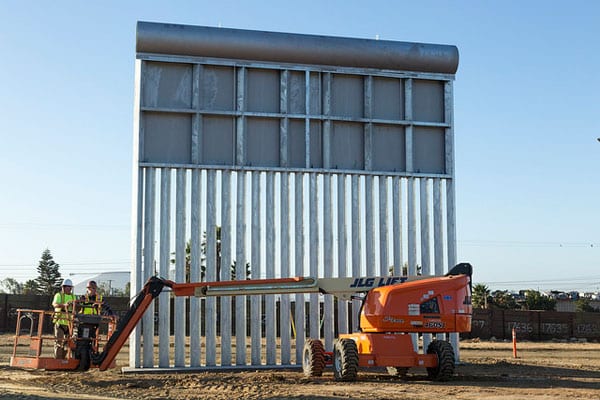
January 10, 2019; NBC News, Washington Post, and CNN
As is widely known, President Trump has said he might declare a national emergency to get around congressional opposition to paying for fences along the US-Mexican border. Of course, any such declaration is highly likely to get tied up in the courts. But, if these legal hurdles were surmounted, what programs would get cut to pay for the alleged “emergency”?
According to Courtney Kube and Julia Ainsley of NBC News, a possible, albeit horrible, answer has been found. In the “you can’t make this up” department, apparently the money would be diverted from existing disaster funding. In a sick and ironic twist, “emergency” funding for the wall would be diverted from funding dedicated to addressing actual national emergencies.
At CNN, Tammy Kupperman, Priscilla Alvarez, and Barbara Starr fill in some details:
Congress appropriated $14 billion in supplemental funds to repair infrastructure in areas of the country hardest hit by disasters including hurricanes, like Hurricane Maria which slammed Puerto Rico in 2017 and resulted in the deaths of nearly 3,000 people.
Sign up for our free newsletters
Subscribe to NPQ's newsletters to have our top stories delivered directly to your inbox.
By signing up, you agree to our privacy policy and terms of use, and to receive messages from NPQ and our partners.
In anticipation of a national emergency declaration, the official tells CNN that the Pentagon was asked to provide lists of unspent funds including those earmarked for civil works projects that are part of disaster recovery in Puerto Rico, Texas, California, Florida, and elsewhere. The official said the funds were only recently received. There is more than $13 billion not yet physically spent on the infrastructure repair projects, but that have been promised to these communities.
For instance, more than $2 billion planned for projects in Puerto Rico has not yet been spent. More than $4.5 billion for projects in Texas, including those related to 2017’s Hurricane Harvey, has also not been spent.
As Kube and Ainsley note, the Army Corps funds projects across the country. They add that, “under an emergency declaration, the president could take the money from these civil works projects and use it to build the border wall.” The Washington Post similarly reports that Army Corps money is used for “flood control projects in areas affected by recent natural disasters, including the Texas coastline inundated by Hurricane Harvey and parts of Puerto Rico battered by Hurricane Maria.”
Kube and Ainsley add that, “Under the proposal…Trump could dip into the $2.4 billion allocated to projects in California, including flood prevention and protection projects along the Yuba River Basin and the Folsom Dam, as well as the $2.5 billion set aside for reconstruction projects in Puerto Rico, which is still recovering from Hurricane Maria.”
Rep. Nydia Velázquez (D-NY) was one of many to respond: “It would be beyond appalling for the president to take money from places like Puerto Rico that have suffered enormous catastrophes, costing thousands of American citizens lives, in order to pay for Donald Trump’s foolish, offensive and hateful wall.” In Houston, newly inaugurated Harris County Judge Lina Hidalgo said to local television station ABC13, “This shouldn’t even be a possibility. These communities have been promised this work.”—Steve Dubb













